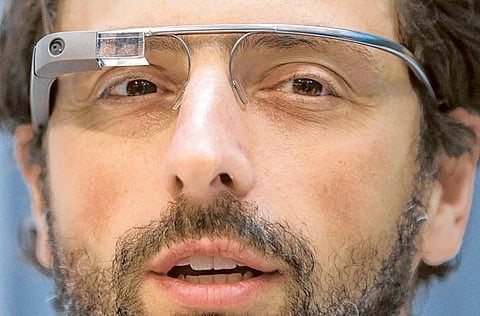Google Glass: the wearable web browser
Is this the next big thing in technology or just a fad?

If you thought tablets and mobile phones have changed the way users receive and process information, this only the start. The new Google Glass, which should reach the market in 2014, promises incredible potential to be the new consumer favourite.
Fernanda Ezabella, a reporter at Brazil’s Folha, did a test with the Glass at a beach and her first impression was “Wow”. She was one of the privileged to buy the first 2,000 ‘Explorer version’ units that the company start selling last week for $1,500. It sells only to those registered at the Google I/ O 2012 event for developers.
“Google sellers in the store taught how to use it for the new buyers,” said Fernanda, who spent two hours with them to configure the device.
It looks like a pair of glasses, but without the lenses, and has a computer coupled with a camera, microphone, screen and a touch-sensitive bar used as browser. To turn it on you only need a gesture with your head, touch the bar or only say the code: “OK, Glass”. Everything is activated by voice control or touching the bar. There a small button for photos and videos.
In the first few attempts, Fernanda took pictures without knowing that she was doing it, deleted pictures and send videos by mistake.
Of course, if you walk in the street with a Google Glass it will call attention on you; the option is to couple it with a black glass that comes along.
Although the glasses were not for sale for general consumers, the new device already has competition; Apple won a patent device similar to Google Glass, but so far nothing has been confirmed. There are rumours that Microsoft will releases a similar glass in 2014. Baidu, the largest search website in China, announced they are working on a prototype.
There is also controversy surrounding the Glass. A reporter from Forbes raises the question of individual privacy. A Seattle F&B outlet banned the use of the new devices inside claiming that they can compromise customers’ privacy. Using when driving can obviously lead to accidents.



